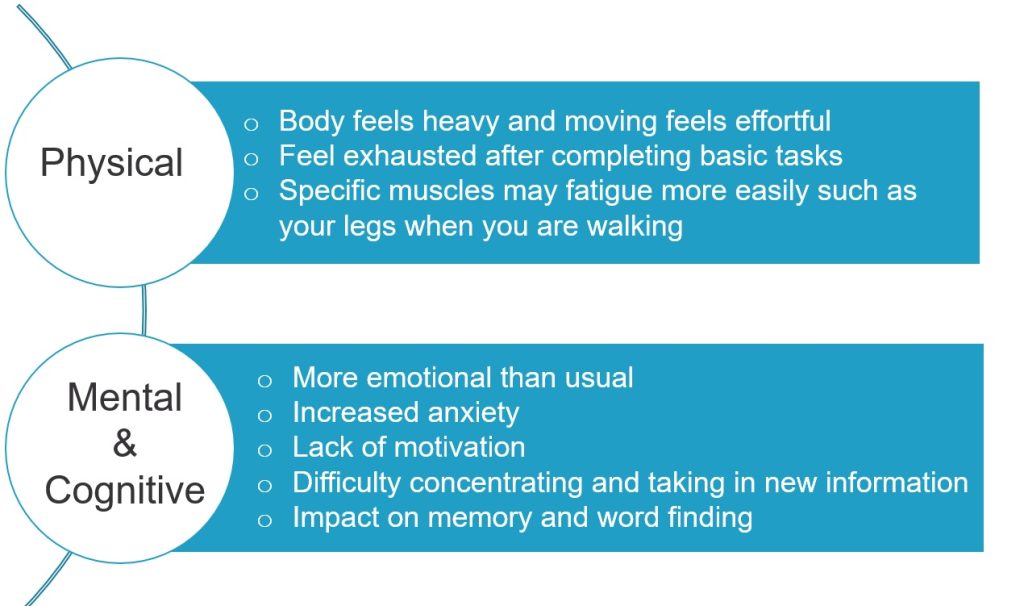Fatigue is a feeling of tiredness or exhaustion that can affect anyone. This page can help you to learn more about fatigue management.
People with cancer often experience fatigue more often than people without cancer, with 9 out of 10 (90%) of people with cancer reporting problems with fatigue. Cancer-related fatigue can be due to the cancer itself or due to the side effects of treatments.
Fatigue can interfere with your ability to complete activities and take care of yourself. As a result, it is unsurprising that fatigue can start to affect mood, attention and memory.

To help with fatigue it is important to try and save your energy. To do this some people find the 3 P’s helpful. This means planning, prioritising and pacing yourself.
Plan
- Try to spread out the activities you need or want to do throughout the day or week.
- If certain activities make you fatigued try to spread them out or plan them for a time you can rest after. For example, perhaps move having a bath or shower to the evening.
- If it is possible, it might be better to ask for help with some activities so you have more energy for other activities.
- There might be specially adapted equipment that might make a task easier. An occupational therapist might be able to help with this.
Prioritise
- Does this need to be done today?
- Could someone else do this?
- What do I have to do today?
Pace
- It is quicker and easier to recover when you are tired than if you push yourself until you become exhausted.
- Breaking a task down into smaller chunks and taking your time will mean you can do more than if you try to do it in one go.
- For example, rather than climb all the stairs in one go and feel exhausted, needing 10 minutes to recover and being sore the next day. Try climbing 5 steps at a time and then stopping for 30 seconds to recover.
- Where possible try and save energy. For example, sit whenever possible, take the lift rather than the stairs, or make sure you have everything you need before coming downstairs to avoid a repeat journey.
You might find it useful to start a diary to try and plan your activities. A diary can also be useful for building breaks and rests into your day. If you are struggling then speak to your GP who might refer you for an occupational therapy assessment if they think it would be useful.
Physical activity can help reduce the symptoms of fatigue therefore doing a little activity is better than doing nothing at all.
Additionally, ensuring you are maintaining a healthy diet and getting enough sleep may improve your energy levels during the day. If you feel you are unfit then a gradual increase in activity with time might help build you back up. If you think you could improve your diet, sleep or physical activity then please see relevant sections of our website for help.